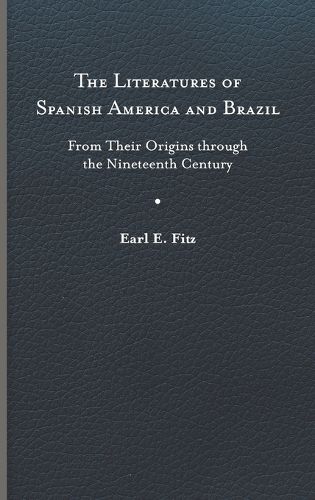Readings Newsletter
Become a Readings Member to make your shopping experience even easier.
Sign in or sign up for free!
You’re not far away from qualifying for FREE standard shipping within Australia
You’ve qualified for FREE standard shipping within Australia
The cart is loading…






In this survey of Central and South American literature, Earl E. Fitz provides the first book in English to analyze the Portuguese- and Spanish-language American canons in conjunction, uncovering valuable insights about both. Fitz works by comparisons and contrasts: the political and cultural situation at the turn of the fifteenth century in Spain and Portugal; the indigenous American cultures encountered by the Spanish and Portuguese and their legacy of influence; the documented discoveries of Colon and Caminha; the colonial poetry of Mexico's Sor Juana Ines de la Cruz and Brazil's Gregorio de Matos; culminating in a meticulous evaluation of the poetry of Nicaragua's Ruben Dario and the prose fiction of Brazil's Machado de Assis. Fitz, an award-winning scholar of comparative literature, contends that at the end of the nineteenth century, Latin America produced two great literary revolutions, both unique in the western hemisphere, and best understood together.
$9.00 standard shipping within Australia
FREE standard shipping within Australia for orders over $100.00
Express & International shipping calculated at checkout
In this survey of Central and South American literature, Earl E. Fitz provides the first book in English to analyze the Portuguese- and Spanish-language American canons in conjunction, uncovering valuable insights about both. Fitz works by comparisons and contrasts: the political and cultural situation at the turn of the fifteenth century in Spain and Portugal; the indigenous American cultures encountered by the Spanish and Portuguese and their legacy of influence; the documented discoveries of Colon and Caminha; the colonial poetry of Mexico's Sor Juana Ines de la Cruz and Brazil's Gregorio de Matos; culminating in a meticulous evaluation of the poetry of Nicaragua's Ruben Dario and the prose fiction of Brazil's Machado de Assis. Fitz, an award-winning scholar of comparative literature, contends that at the end of the nineteenth century, Latin America produced two great literary revolutions, both unique in the western hemisphere, and best understood together.